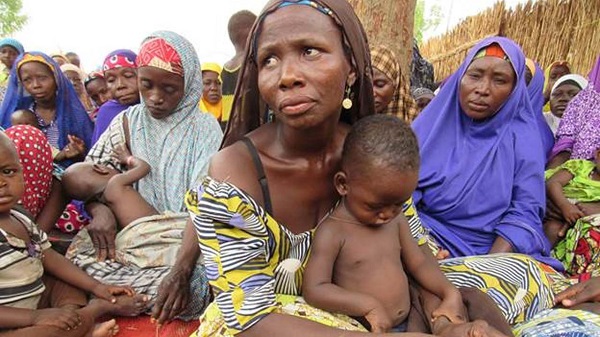
In commemoration of the 2022 World’s AIDS day, a non-governmental organisation, APIN Public Health Initiatives, took its sensitisation to internally displaced persons (IDPs) at Wassa Camp in Abuja, to raise awareness and educate them on HIV/AIDS.
The event, with hundreds of women and over 30 men in attendance, took place today (December 1, 2022) in Abuja, to commemorate the 2022 World AIDs Day at the camp.
The associate director, clinical services, APIN Public Health Initiatives, Dr. Plang Jwanle called on policymakers and Nigerians to boldly recognise and address the inequalities which were holding back progress in ending AIDS and equalising access to essential HIV services.
Jwanle said that this is particularly for key populations, noting that, like the men who have sex with men, transgender people, drug users, sex workers, prisoners, migrants and their partners.
“We commemorate AIDs Day with the global community to show our shared commitment and responsibility to reduce the impact of the disease in our communities.
“We want to show that we are aware of these public health issues and want to participate in raising awareness through these activities to try and impact our community positively by engaging the IDPs,” he explained.
He said young people aged 14 and above were most likely to practice and engage in unsafe sex and that the activity aimed to raise awareness that HIV/AIDs is still real and a cause for concern in the country.
“If the IDPs are proponents of the HIV/AIDs message, it is expected to be more impactful and useful to them. In turn, as carriers of the HIV/AIDS message, they can spread the word to raise more awareness and reduce the surge of HIV/AIDs in this camp.
“We believe that this information can reduce the spread of HIV/AIDs in Nigeria. Abstinence is the key to reducing the spread of HIV among young persons. For me, knowledge on its own is not power; but what we do with the knowledge is what makes it powerful.”
According to him, the fear of the social stigma associated with AIDs/HIV diagnosis makes men delay getting tested for the condition.
Jwanle said that men who were diagnosed with AIDs/HIV at an early stage have a much better prognosis than those who show up too late to health facilities.
“By putting those exams off, male patients find themselves in a much worse condition. A lot of men have the attitude of ‘I don’t need to see a doctor’.
“Many men convince themselves that their condition will improve on its own, not wanting to ‘bother’ a doctor in the meantime, for fear of the fact that ‘vulnerability sucks’,” he said.
He stressed that some men were worried about a bad diagnosis or a troublesome outcome.
“They see going to the health facility as a weakness. Some have the ‘superhero syndrome’, others see themselves as forever strong and capable of handling anything,” Jwanle explained.
While commending the APIN, chairman of Wassa resettlement, Mr. Geoffrey Bitrus said that the resettlement is the largest IDP camp in the FCT.
Bitrus said that there were over 5000 IDPs currently living in the camp, with over 70 per cent of them women and children who depend largely on donations, subsistent farming and daily jobs for survival.
He said the sensitisation was the first time most of them would be educated about HIV/AIDs.
So far, he said, they have not been casualties of HIV/AIDs in the camp, but the camp has had measles and cholera outbreaks presently, with so many women suffering from preventable sanitary conditions.
“Our major challenge is water. Although we have about seven boreholes, only three are working. We do not have electricity to pump water, so we get water from the stream.”
Bitrus said that they lack basic amenities including safe water and the health facility is too small for their population, with two health community workers, who he said were discouraged by the lack of drugs.
“They have to use their resources to save lives.
“We are another tale of displaced Nigerians suffering from different forms of neglect, including lack of potable water, toilets and schools. We have over 400 children done with their primary school and can not [go] further,” he stressed.
He called on the government and Nigerians to come to their aid, to help give them access to health, education for their teenage population, water, electricity and sanitation.

